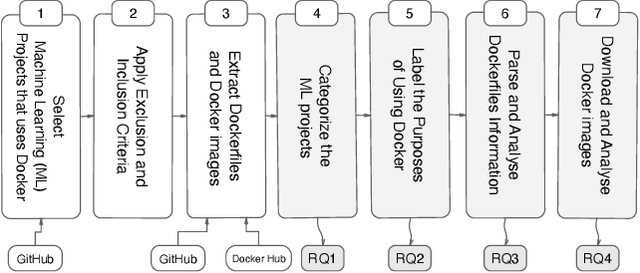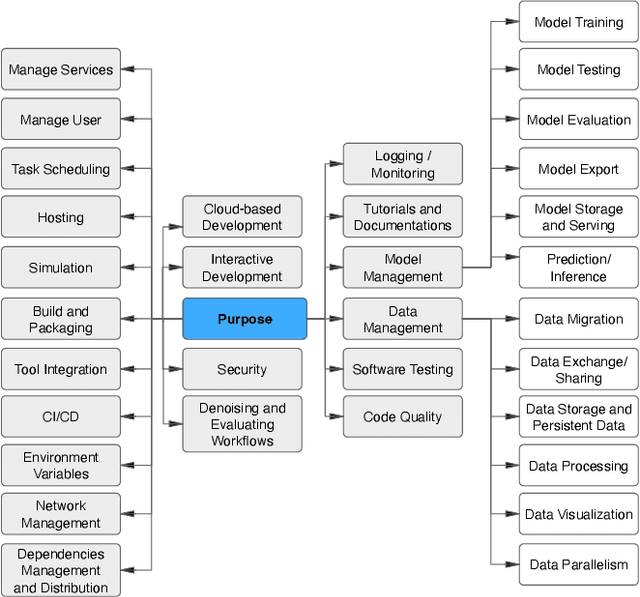Bhagya Chembakottu
Studying the Practices of Deploying Machine Learning Projects on Docker
Jun 01, 2022



Abstract:Docker is a containerization service that allows for convenient deployment of websites, databases, applications' APIs, and machine learning (ML) models with a few lines of code. Studies have recently explored the use of Docker for deploying general software projects with no specific focus on how Docker is used to deploy ML-based projects. In this study, we conducted an exploratory study to understand how Docker is being used to deploy ML-based projects. As the initial step, we examined the categories of ML-based projects that use Docker. We then examined why and how these projects use Docker, and the characteristics of the resulting Docker images. Our results indicate that six categories of ML-based projects use Docker for deployment, including ML Applications, MLOps/ AIOps, Toolkits, DL Frameworks, Models, and Documentation. We derived the taxonomy of 21 major categories representing the purposes of using Docker, including those specific to models such as model management tasks (e.g., testing, training). We then showed that ML engineers use Docker images mostly to help with the platform portability, such as transferring the software across the operating systems, runtimes such as GPU, and language constraints. However, we also found that more resources may be required to run the Docker images for building ML-based software projects due to the large number of files contained in the image layers with deeply nested directories. We hope to shed light on the emerging practices of deploying ML software projects using containers and highlight aspects that should be improved.
 Add to Chrome
Add to Chrome Add to Firefox
Add to Firefox Add to Edge
Add to Edge